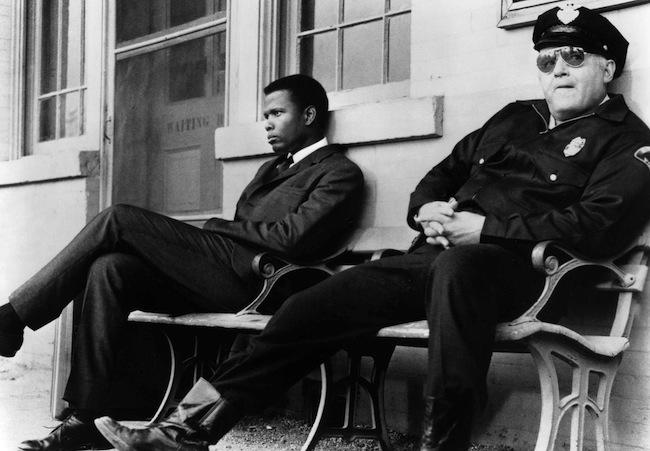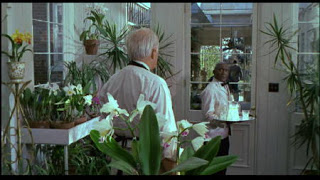
Good Morning POU!
The Slap Heard Round The World

They called it the “Slap Heard ‘Round the World.” It happened partway through “In the Heat of the Night” — a movie released at the height of racial tensions during the Civil Rights Era (on August 2, 1967) — in a scene where a bigoted Southern cotton plantation owner slaps Sidney Poitier and Poitier slaps back just as hard. Years of deferential behavior, both from Poitier in saintly role-model performances, and from every black actor ever to perform in a Hollywood movie, halted with a mighty thwack.
It’s one of the most memorable moments in film history and helped earn “In the Heat of the Night” the Best Picture Oscar that year. This was one of the first times in any major motion picture when a black man reacted to provocation from a white man in such a way. Even today, the scene remains brutally effective, a reminder of how much has changed in 47 years, and how much has not. The film — in which a racist Southern sheriff (Rod Steiger) and a haughty black police detective from the Northeast (Poitier) develop a grudging mutual respect as they cooperate to solve a murder in a sultry Mississippi town — still works on two levels: as a civil rights parable and as a grimy crime drama. That explains the movie’s durable popularity and many sequels and spinoffs.
In 1965, noted Mark Harris in ‘Slate’ magazine, in order to get the film made, “producer Walter Mirisch had to run the numbers and show United Artists that a picture in which Sidney Poitier one-upped a town full of white rubes could make money even if it never opened in a single Southern city.”
Sidney Poitier plays the Philadelphia detective visiting a relative in the Deep South. He’s arrested, vexatiously, by the local police. Beginning an almost routine process of trying to fix him up for a local murder, he reveals his identity. In a performance that won him an Oscar, Rod Steiger plays the role of Police Chief Bill Gilliespie. Initially an oafish redneck, the growing respect between himself and Poitier’s Detective Virgil Tibbs is one of the great two-handers of cinema.
When production began in 1966, Poitier refused to shoot in the South. He was still traumatized by the experience of being tailed by Klansmen when visiting Mississippi with Harry Belafonte. During a 1964 visit to Greenville, to deliver $70,000 in donations to civil rights workers, Poitier and Belafonte had been tailed by Klansmen and nearly run off the road. Jewison promised Poitier that they wouldn’t actually shoot in the South — a promise he ended up not keeping.
So it was in Illinois, not Mississippi, that the film was made. But to capture the slap scene, and the cotton plantation that surrounded it, Jewison persuaded Poitier to go to Dyersburg, Tenn., for three days. Poitier reluctantly agreed to a few days of tense location work in Tennessee. Plagued by whooping rednecks, much like a scene from the film itself, Poitier told Jewison that he slept with a gun under his pillow.
The scene in question takes place in an orchid house attached to a grand mansion. Wealthy local Eric Endicott is being questioned about the murder by Detective Tibbs. He doesn’t like it. He’s not used to being talked back to by a black man. Tibbs speaks calmly, politely. Endicott lunges towards him, past a large white orchid in full bloom, and slaps him on his face for his insolence. Without warning, Tibbs slaps him back, harder. Endicott, astonished, nearly falls over. “There was a time,’ he tells Tibbs, “when I could have had you shot.” Tibbs, Gillespie and an astonished black servant bearing glasses of lemonade depart the room leaving Endicott to weep.



